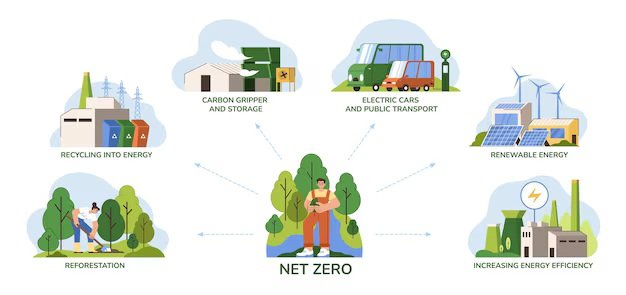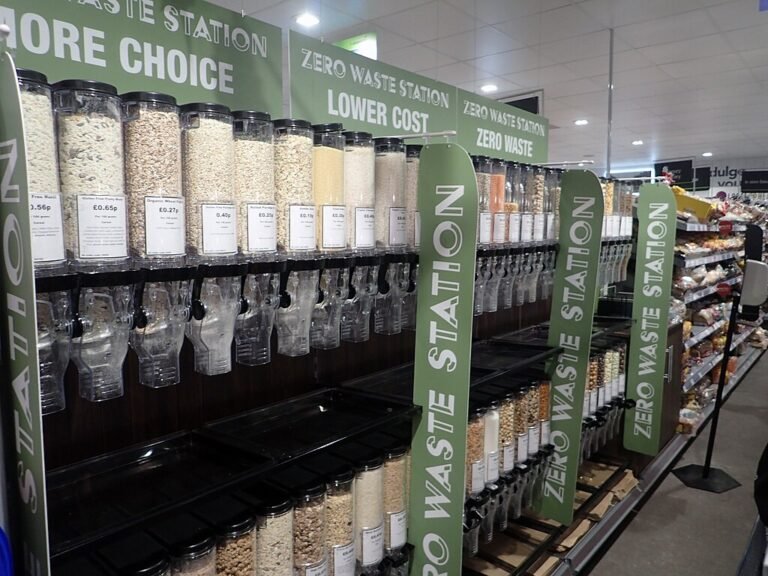10 Greenwashing Examples — How to Recognize and Avoid It
Every week, a new product, ad or investment fund rolls out a shiny sustainability claim: “climate-friendly,” “plant-based bottle,” “conscious collection,” “carbon-neutral flight.” Those phrases sound good — and that’s exactly the problem. Overstated, vague or selectively framed environmental claims can mislead customers, investors and regulators. They slow real action and reward surface-level fixes while greenhouse gases, plastics and biodiversity loss keep rising. A European Commission assessment found that a large share of business environmental claims are weak or unsupported — a reality that pushed regulators and courts in many countries to start pushing back.

In This Article
- Ten Real Cases that Show How Greenwashing Looks in the Wild
- Why Greenwashing Happens — and Why it Damages Real Climate and Nature Action
- How to Spot Greenwashing — Simple Checks that Actually Work (and What Companies Should Do Instead)
Ten Real Cases that Show How Greenwashing Looks in the Wild
Volkswagen’s “clean diesel” era is a textbook case of claims that hid reality. Regulators in the U.S. and Europe found VW used software to cheat emissions tests; the scandal led to criminal charges, huge fines and billions in buybacks and repairs. The episode isn’t just a historical headline — it demonstrates how attractive, technical claims about low emissions can be weaponised to mask actual pollution. According to Reuters, the scandal cost Volkswagen more than €31 billion in fines and settlements.
Big oil’s glossy green advertising has been another obvious target. In 2023, Britain’s ad watchdog banned a number of campaigns by major energy companies that stressed renewable projects while failing to disclose that the companies’ core business remained fossil fuels. The ASA’s rulings made clear that presenting a few green projects without contextualising the company’s overall emissions footprint misleads consumers. According to the Advertising Standards Authority, multiple Shell ads were banned for exaggerating the scale of the firm’s low-carbon activity.
The financial world has had its scandals, too. Regulators have fined asset managers for overstating ESG integration in funds. For example, the U.S. Securities and Exchange Commission levied penalties in high-profile cases — Goldman Sachs paid a penalty in 2022 for failures around ESG procedures, and Deutsche Bank’s DWS has faced investigations and settlements tied to misleading ESG statements that followed a whistleblower’s complaint. These actions underline that “green” labels on investment products can mask gaps between marketing and actual portfolio decisions. According to the SEC, Goldman Sachs settled charges in 2022; the Financial Times and SEC documents later detailed DWS enforcement actions in 2023–2025.
Household brands get taken to task when packaging promises don’t match reality. Keurig agreed to a civil penalty after the SEC found the company overstated the recyclability of its K-Cup pods in investor disclosures — a reminder that claims about simple things like “recyclable” or “made from recycled content” can be misleading when the local recycling systems don’t accept the material. According to the SEC, Keurig settled in 2024.
Beverage giants also draw scrutiny for packaging claims. Campaigners and municipal lawsuits have accused large soda companies of overstating the effectiveness of their recycling programs while producing billions of single-use plastic bottles — criticism that regulators and NGOs say amounts to greenwashing. Activist groups and local governments have launched legal actions arguing that marketing overstated the industry’s environmental performance. According to Oceana and reporting in 2024–2025, beverage packaging and Olympics sponsorships prompted formal complaints.
Fast fashion’s “conscious” and “sustainable” lines have repeatedly been litigated. H&M faced high-profile suits and complaints alleging that its “Conscious” labels and online scorecards gave consumers the impression that garments were significantly eco-friendly when materials and end-of-life impacts told a more complex story. Courts and regulators are still refining where to draw the line between comparative language and deception. According to reporting by Reuters and The Fashion Law, U.S. and EU litigation and enforcement around fashion claims grew through 2022–2024.
Airlines have been challenged over “sustainable flight” promotions. The UK Advertising Standards Authority banned ads that implied flights could be sustainable in the absolute sense — regulators pointed out that sustainable aviation fuels and offsets do not eliminate most aviation emissions and that singling out a flight as “100% sustainable” without full context misleads consumers. The Financial Times and ASA rulings highlighted cases like Virgin Atlantic and others between 2023–2024.
TotalEnergies faced a court ruling in South Africa and regulatory scrutiny elsewhere over campaign language tied to conservation projects; critics argued those campaigns glossed over the company’s broader fossil-fuel impacts. The dispute illustrates how partnerships with parks, sports or cultural events can be framed to improve reputations even when core operations create major emissions. According to the Financial Times reporting, the South African ruling and appeals drew international attention in 2024.
Retailers and consumer goods firms have been flagged for “green” labels that rest on tiny percentages of recycled content, confusing logos or unverifiable offset claims. European regulators found that a large share of product-level green claims were vague, unsupported or poorly verified — a reality that motivated the EU’s Green Claims proposals (later debated politically). The assessment by the European Commission mentioned earlier suggested that about 53% of environmental claims examined were vague, misleading or unfounded.
Finally, NGOs and watchdog reports collect and summarise hundreds of smaller cases each year; a civil-society review for 2024–2025 mapped dozens of ads and product claims across sectors that governments and independent researchers considered misleading — a pattern that shows greenwashing is widespread, not accidental. A report by Just Zero in 2025 catalogued many recent cases and warned of an ongoing “greenwash cycle” across industries.
Why Greenwashing Happens — and Why it Damages Real Climate and Nature Action
Greenwashing is tempting because the market rewards green narratives. Shoppers and investors now prize sustainability, but verifying environmental performance is often complex and costly. Companies may lean on vague adjectives, one-off projects and third-party labels to win that premium without deeply changing their operations. Regulators and courts are responding: the ASA’s enforcement, SEC actions against fund managers and national prosecutors’ fines in Europe show that authorities are treating serious, repeat, or systemic misstatements as enforcement issues rather than PR problems. According to the ASA and the SEC, regulators have increasingly pursued misleading environmental claims since 2022–2023.
The human costs are real. Whistleblowers such as Desiree Fixler — the former DWS sustainability officer who raised alarms about optimistic ESG presentations — describe personal and professional fallout but also show how internal accountability can uncover misstatements that hurt investors and communities. Fixler’s disclosures helped trigger investigations and wider debate about how asset managers market sustainability. According to reporting and interviews, Fixler’s allegations were a catalyst in the DWS investigations beginning in 2021 and later enforcement.
Greenwashing also erodes public trust. Surveys such as Edelman’s trust barometer show that inconsistent corporate messaging undermines confidence in companies and institutions — and when citizens stop trusting green claims, regulators and courts step in to protect consumers. A 2024 Edelman report discussed shifting levels of trust and flagged the role of credible, evidence-based claims in rebuilding confidence.
How to Spot Greenwashing — Simple Checks that Actually Work (and What Companies Should Do Instead)
Companies and people can take practical steps now. Below is a compact table with common misleading patterns and the real-world case that exposed them — these are short, concrete checks you can perform before believing or broadcasting a claim.
| What to watch for | Short check you can do | Real case that exposed the pattern |
|---|---|---|
| Big, vague words with no proof | Ask “how” and “by when” — look for methods and dates | “Conscious” labels in fashion (H&M litigation). |
| Product or ad that highlights one green project but hides the core activity | Check the company’s full emissions/income breakdown | Shell ads banned by ASA for omitting the scale of its fossil business. |
| Claims that rely solely on offsets or future targets | Ask if emissions reductions are absolute (scope 1–3) or offset-based | Airline ads around sustainable aviation fuels (ASA bans). |
| “Recyclable” or “recycled” claims without local context | Check whether the local recycling infrastructure accepts the material | Keurig SEC settlement over recyclability of K-cups. |
| Fund names that imply sustainability without portfolio evidence | Read the fund prospectus for the “Names Rule” or percent allocations | DWS and other asset manager enforcement actions. |
Use those checks every time you see a green claim. If the answer to “how is this verified?” is unclear, treat the claim as marketing — not fact.
For companies wanting to avoid greenwashing: be specific, quantify and disclose methodology, use independent third-party verification, and report both successes and gaps. Keep marketing and sustainability teams aligned with legal/compliance to ensure claims are accurate and contextualised. Guy Parker, chief executive of the UK Advertising Standards Authority, has repeatedly advised companies to avoid sweeping absolute claims and to make verification and limitations easy for consumers to find. According to Edie, 2025, ASA guidance urges precision, clear qualifiers and evidence.
For regulators and journalists: demand lifecycle numbers, require verifiable metrics, and focus on systemic impact rather than one-off projects. The European Commission’s work on green claims — and the political debates surrounding it — shows how difficult it is to balance enforceability with business burdens. Still, independent verification and clarity remain the most effective tools to curb greenwashing. The Commission’s review found that many claims were vague or lacked evidence, prompting policy action.
Actionable Takeaways
Be sceptical of adjectives: “green,” “eco,” “sustainable,” “conscious” — ask for the numbers behind them. Look for third-party verification, clear timelines, and whether a claim covers the whole product lifecycle or only a marketing slice. If you’re a buyer, investor or journalist and a claim looks unsupported, file a simple complaint with the relevant regulator (ASA, FTC/SEC, national consumer body) — enforcement is working and grows more effective with clear evidence. Regulators and whistleblowers have moved from nudges to fines and bans; the data, investigations and court records are now on the side of people who insist on proof. See the SEC, ASA and ESMA reports for practical enforcement precedents and guidance.







